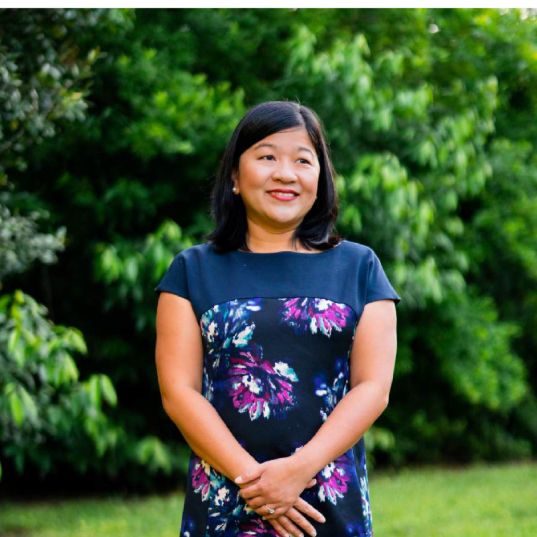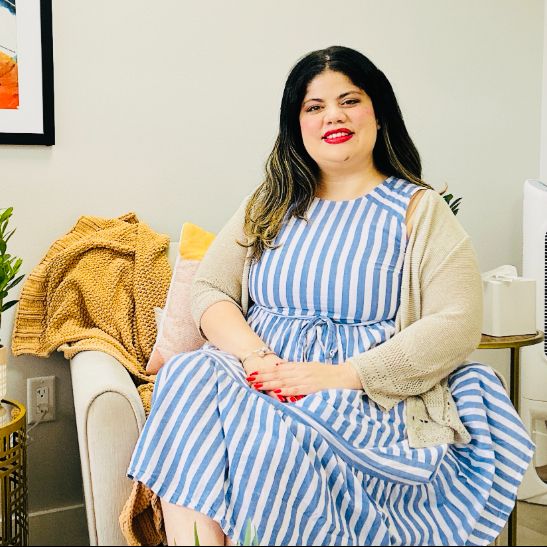Finding Support for Grief in Miami
Living with Grief can feel overwhelming and isolating, touching every part of life. You’re not alone—support is here in Miami. MiResource is a trusted guide that makes it simple to connect with therapists in Miami, both online and in-person. You’re in the right place to find compassionate care and take the next step at your own pace.
An Overview of Grief
Grief is the deep emotional response to losing someone or something important, and it can affect your mood, sleep, work, and relationships. If you’re in Miami and feeling overwhelmed, you’re not alone—your experience matters, and healing takes time. Therapy offers a safe space to process feelings, learn coping skills, and find support tailored to Miami’s diverse community.
Defining Grief
Grief is the natural emotional, physical, and mental response to losing someone or something important, and it can be especially intense during major life changes in a busy city like Miami. Common signs include deep sadness, shock or numbness, guilt, anger, trouble sleeping, changes in appetite, difficulty concentrating, and pulling away from others, as described by the American Psychological Association (APA) and the National Institute of Mental Health (NIMH). Day-to-day, grief can look like missing work or school, feeling drained in traffic or at the beach, forgetting tasks, avoiding social plans, or struggling to keep up with family responsibilities. While everyone grieves differently, support and time help most people find a new balance. If you’re looking for support, you’re welcome to explore the broader Grief therapy resources on MiResource.
Benefits of Therapy for Grief
Cognitive Behavioral Therapy (CBT) helps you challenge unhelpful thoughts and build coping routines that ease intense waves of sadness. Complicated Grief Therapy (also called Prolonged Grief Treatment) offers structured steps to process loss, restore daily functioning, and reconnect with meaningful activities. Acceptance and Commitment Therapy (ACT) teaches mindfulness and values-guided actions so you can carry grief while re-engaging in life. EMDR can reduce traumatic memories and triggers associated with the loss, improving sleep and lowering anxiety. Interpersonal Therapy (IPT) strengthens communication and support in relationships, helping you feel less isolated—therapy works, and many people find renewed hope in Miami.
The Therapy Journey – What to Expect
Starting grief therapy in Miami begins with a compassionate initial assessment where you share your story, losses, and current supports so your therapist can understand what you need right now. Together, you’ll set realistic goals—like easing daily overwhelm, honoring your loved one, improving sleep, or navigating milestones—and agree on a pace and session schedule that fits your life. Ongoing sessions blend evidence-based approaches such as Complicated/Prolonged Grief Therapy, Cognitive Behavioral Therapy, Acceptance and Commitment Therapy, and meaning-centered or mindfulness strategies, tailored to your culture, values, and preferences. Your therapist will check in regularly, adjust techniques as things change, and collaborate on skills you can use between sessions. While healing isn’t linear, you can expect steady guidance, respectful partnership, and a supportive space to remember, cope, and rebuild in your own time.
Tips for Choosing the Right Therapist in Miami
Enter Miami as your location in MiResource and choose Grief under conditions to see matching providers. Use the therapy approach filter to pick what suits you best, such as CBT, EMDR, or grief-focused group therapy. Select your insurance plan (or self-pay) to view in-network options and clear pricing. Choose your preferred language and set availability filters for days, times, and telehealth or in-person visits. Refine results by Miami neighborhoods like Brickell, Little Havana, Wynwood, or South Beach to find nearby support. Because personal fit matters most, compare profiles, save favorites, and take the next step by exploring the directory and reaching out today.
Why a Local Miami Therapist Can Make a Difference
Miami’s rich blend of Latin American, Caribbean, and diasporic cultures shapes how people experience and express grief, from faith-based rituals to community memorials. Many residents are bilingual or multilingual, and therapists who speak Spanish and Haitian Creole can honor traditions while guiding healthy coping. Community-wide losses—from hurricanes to events like the Surfside collapse—have fostered shared mourning practices that informed local grief support. A local Miami therapist understands family-centered decision-making, immigration-related loss, and the role of music, food, and spirituality in healing.
In-person care can be especially grounding amid Miami’s fast pace and heavy traffic along I-95, SR 836 (Dolphin), and SR 826 (Palmetto). Accessible offices near Metrorail, Metromover, and major Metrobus hubs in Brickell, Downtown, Dadeland/Kendall, Coral Gables, Little Havana, and North Miami make sessions easier to keep. Air-conditioned, hurricane-resilient therapy spaces offer privacy during summer heat, sudden thunderstorms, and June–November hurricane season. Local therapists can also integrate grief walks in Bayfront Park, mindfulness by the waterfront, or art-informed processing near Wynwood and Pérez Art Museum Miami.
Resources include Children’s Bereavement Center for free groups across Miami-Dade, VITAS Healthcare grief services , Catholic Hospice bereavement , and Miami-Dade County Victim Services for trauma and loss support. For immediate help: call or text 988 or chat; text HOME to 741741 for Crisis Text Line; call 911 for imminent danger. Emergency departments include Jackson Memorial Hospital, UHealth Tower, Baptist Hospital of Miami, Mount Sinai Medical Center Miami Beach, and Nicklaus Children’s Hospital (pediatric). You can also dial 211 for JCS 211 Miami community referrals.
Grief Therapy in Miami: FAQ Guide
When should I consider seeking help for Grief?
Consider seeking help for grief if your sadness, numbness, or guilt persist or intensify over weeks, make it hard to function at work or school, or strain your relationships. It’s also a good time to reach out if you’re avoiding reminders of your loss, struggling with sleep or appetite, or feeling stuck and overwhelmed. If you have thoughts of self-harm or feel unsafe, get immediate support. Early care can ease the burden, and you can choose in-person or virtual grief therapy in Miami to fit your needs.
What if I don’t click with my therapist right away?
In Miami, it’s normal not to click with a Grief therapist right away—many people try more than one, and a strong therapeutic alliance is linked to better outcomes for Grief. You can switch anytime and use MiResource to compare therapists’ approaches, insurance, and availability in Miami to find the best fit.
Does online therapy really work for Grief?
Yes—many people in Miami find online therapy helpful for grief, offering flexible scheduling, privacy at home, and access to specialized providers without travel. It can be especially supportive for those juggling work, childcare, or who prefer a comfortable, familiar setting to process emotions. Considerations include needing a private space and reliable internet; some people also feel more connected with an in-person presence. In-person therapy in Miami may be preferred if you want deeper nonverbal connection, are in acute crisis, need coordinated support (e.g., family sessions), or benefit from local grief groups and community resources.
How do I prepare for my first session?
Preparing for your first session can feel tender—here are simple steps to help you feel ready and cared for:
1) Set a gentle intention: What do you hope to feel or understand after a few sessions?
2) Note your story: Jot down key moments of your loss, important dates, and what’s been hardest lately.
3) Track your coping: List what helps, what doesn’t, and times of the day your grief feels strongest.
4) Gather support info: Who’s in your support circle, and what do you need more of right now?
5) Plan comfort: Wear something cozy, build in a few minutes before and after for quiet time.
6) Sort logistics: Confirm location/parking or telehealth setup, complete forms, and check coverage.
7) Be gentle with yourself: It’s okay to cry, pause, or not have all the words yet.
What to bring
- Photo or meaningful item (optional) that represents your loved one or your loss
- A short list of goals or concerns
- Medications list and relevant medical/mental health history
- Insurance/ID, payment method, and any referral info
- A journal or notes app for takeaways
What to expect
- A compassionate space to share at your pace
- Questions about your loss, your supports, cultural or spiritual beliefs, and daily routines
- Collaborative goal-setting and a plan for coping between sessions
- Education about grief, normal responses, and when added support might help
- Practical tools (breathing, grounding, rituals of remembrance)
Questions you might ask
- What does a typical session look like, and how will we pace things if I feel overwhelmed?
- How do you tailor grief therapy to different kinds of losses (recent, past, sudden, anticipatory)?
- What approaches do you use (e.g., CBT for grief, meaning-making, EMDR for traumatic loss)?
- How can I honor my loved one while moving forward?
- What should I do if my grief spikes between sessions?
- How will we measure progress, and how long might therapy last?
You’re not alone—taking this first step toward Grief therapy in Miami is an act of care for yourself.
Can therapy truly help with Grief?
Yes—decades of research show therapies like Cognitive Behavioral Therapy and Complicated Grief Therapy reduce grief intensity, depression, and anxiety and improve daily functioning. In Miami, a skilled therapist can offer a compassionate space to honor your loss, build coping skills, strengthen support, and find meaning and routines that fit your life. Progress is most likely when you attend regularly and practice tools between sessions—grief takes time, but consistent, committed work helps you move forward while staying connected to what matters.













